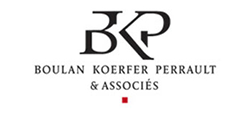
As of January 1st, 2021, the United Kingdom’s withdrawal from the European Union became effective.
What does this withdrawal imply in child abduction cases between the UK and Europe?
Until December 31st, 2020, each time a child, residing in the EU or the UK, was illegally removed from home by a relative or parent to the UK or EU, the left-behind parent could request the return of the abducted child in accordance with The Hague Convention on Civil Aspects of International Child Abduction dated 25th October 1980 in conjunction with Brussels II bis.
However, since January 1st, 2021 this latter regulation, that provided strengthened protection and effectiveness of the above-mentioned Hague Convention, has no effect anymore in relation to the UK and Europe.
The left-behind parent can still apply for the child’s return to the country of origin based on the 1980 Hague Convention.
However, proceedings initiated on this basis may take longer (1.) and it may be more complicated to obtain a child’s return order (2.).
1 – Concerns about the possible increase in the length of proceedings.
As the Brussels II bis Regulation no longer applies in child abduction cases, the courts are not required to make their decision within six weeks of the hearing as the deadline is no longer binding.
The return of the child may be even more delayed compared to child abduction cases involving two EU Members, since the Brussels II bis Regulation simplifies the enforcement of the return order. The mere production of a certificate issued by the jurisdiction of the Member State of origin enabled the return order’s enforcement. This will no longer be the case between the UK and the EU. As a result, an exequatur procedure seems to be necessary again.
2 – Concerns about the outcome of the child’s abduction.
Moreover, the notion of danger, which may justify the child’s non-return, is more specific under the Brussels II bis regulation as it stipulates that “a court cannot refuse to return a child … if it is established that adequate arrangements have been made to secure the protection of the child after his or her return.”. Consequently, every time adequate measures to ensure the protection of the child have been taken by the State of residence, his or her return cannot be refused on this ground.
As the Brussels II bis Regulation no longer applies in cases involving the UK, the courts’ margin of appreciation is now greater. A non-return decision could be based on the serious risk that the return would expose the child to harm or an intolerable situation, notwithstanding the measures taken by the State to ensure protection.
Finally, according to various articles of the Brussels II bis Regulation, a decision issued by the child’s State of origin ordering return prevails over a decision of non-return made by the State of refuge, provided that, among other requirements,
« a) the child and the parties were given the opportunity to be heard.
and
(b) the court has taken into account the provisions of the 1980 Hague Convention.».
Henceforth, the State of refuge may now refuse to return the child, notwithstanding a decision delivered by the State of origin ordering return.
Therefore, it may be in the best interests of the child and the left-behind parent to seize the court of child’s place of residence, to try to obtain a decision on the merits of the case and to request its enforcement before a decision of non-return is issued.
The lack of international conventions or bilateral treaties as protective as the Brussels II bis Regulation binding France and the United Kingdom leads to reduced protection of the child and the left-behind parent in child abduction’s cases.

Prisca BLARD
SCP BKP Avocats et Associés
Law office based in PARIS / VERSAILLES.

